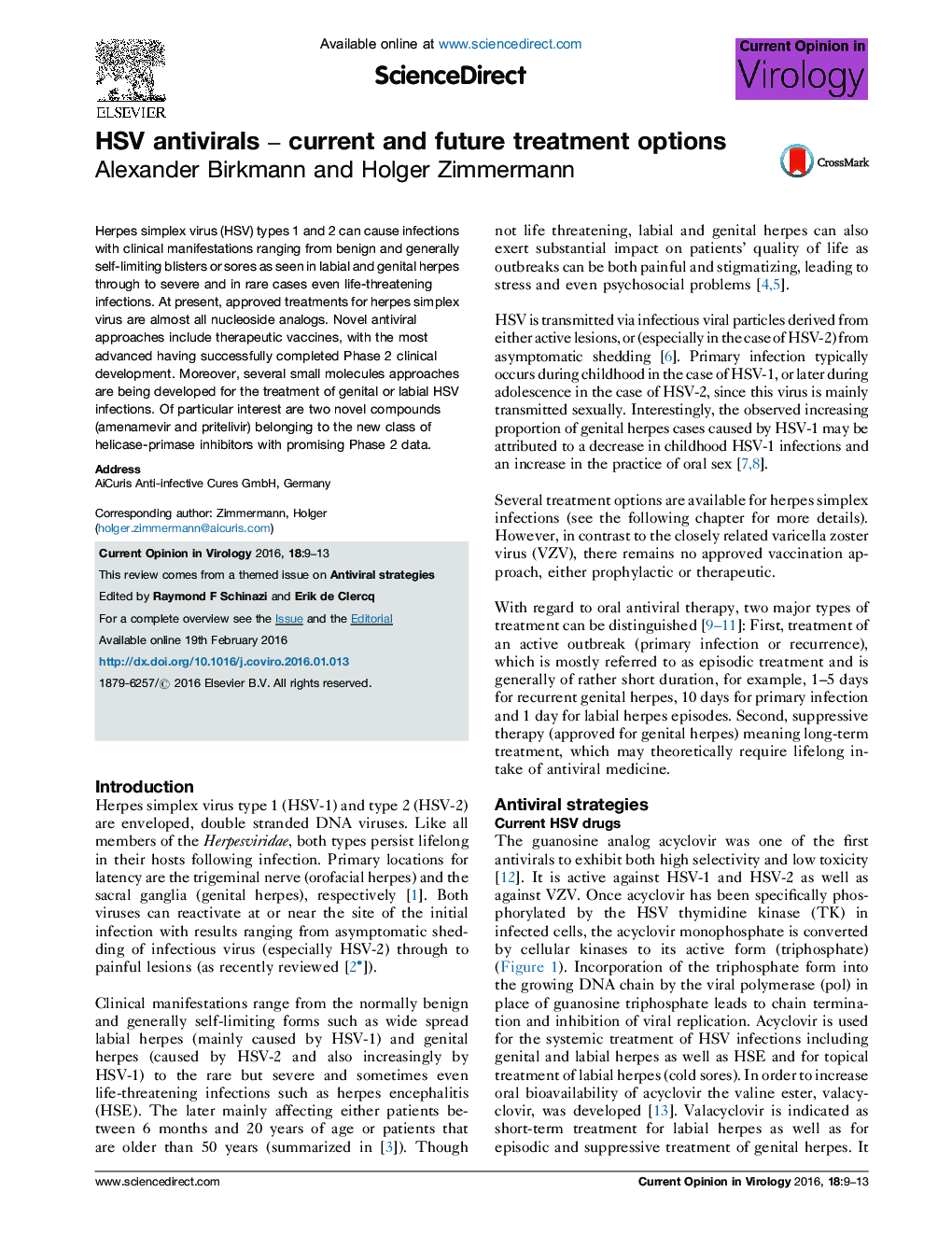| Article ID | Journal | Published Year | Pages | File Type |
|---|---|---|---|---|
| 5806552 | Current Opinion in Virology | 2016 | 5 Pages |
â¢Herpes simplex types 1 and 2 cause lifelong persistent infections.â¢Current treatment with nucleoside drugs is not optimal.â¢First therapeutic vaccines are in clinical development.â¢Helicase-primase inhibitors represent a promising novel small molecule approach.
Herpes simplex virus (HSV) types 1 and 2 can cause infections with clinical manifestations ranging from benign and generally self-limiting blisters or sores as seen in labial and genital herpes through to severe and in rare cases even life-threatening infections. At present, approved treatments for herpes simplex virus are almost all nucleoside analogs. Novel antiviral approaches include therapeutic vaccines, with the most advanced having successfully completed Phase 2 clinical development. Moreover, several small molecules approaches are being developed for the treatment of genital or labial HSV infections. Of particular interest are two novel compounds (amenamevir and pritelivir) belonging to the new class of helicase-primase inhibitors with promising Phase 2 data.
